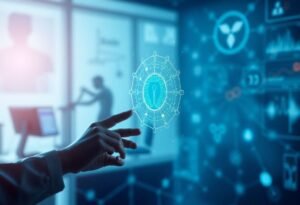The advancement of Artificial Intelligence (AI) has significantly redefined the landscape of robotics. As these two fields converge, the future of AI in robotics signals unprecedented innovation that promises to enhance efficiency, precision, and capabilities in various industries.
The Integration of AI in Robotics
The synergy between AI and robotics brings forth a new era of automation. AI algorithms enable robots to analyze data and learn from their environment, enhancing their decision-making capabilities. Whether in manufacturing or healthcare, the integration of AI allows robots to adapt to new situations, improving operational outcomes. As AI systems become more sophisticated, robots will execute tasks with increased accuracy, revolutionizing workflows in various sectors.
Enhancing Human-Robot Collaboration
AI in robotics fosters better collaboration between humans and machines. By enabling robots to understand contextual cues and respond accordingly, we enhance teamwork in settings like factories and hospitals. This capability not only boosts productivity but also promotes a safer and more efficient working environment. AI-driven robots can handle repetitive and potentially hazardous tasks, allowing humans to focus on more strategic activities.
Implications for Different Industries
The implications of AI in robotics extend across various industries. In the automotive sector, for instance, AI-powered robots streamline manufacturing processes, resulting in quicker production cycles. Similarly, in agriculture, autonomous robots equipped with AI analyze soil and crop data, thus optimizing yield while minimizing environmental impact. The versatility of AI-enabled robots is reshaping industries by driving both productivity and sustainability.
The Role of AI in Service Robotics
Service robots equipped with AI are transforming the consumer experience across multiple fields. From personalized shopping assistants to autonomous delivery systems, AI enhances the functionality and responsiveness of service robots. They can process customer interactions more effectively, providing tailored experiences that meet evolving consumer demands. This shift signifies an evolution in how businesses engage with clients, integrating robotic technology into everyday operations.
The Future Workforce: AI and Robotics
The collaboration between AI and robotics will reshape the future workforce. As these technologies advance, there will be a growing demand for workers skilled in managing AI systems and robotics. Training programs will evolve to include these competencies, enabling individuals to thrive in high-tech industries. The mutual growth of AI and robotics will thus not only enhance productivity but will also create new job opportunities focused on innovation.
Ethical Considerations
While the potential of AI in robotics is vast, it is vital to address the ethical challenges that arise. Concerns regarding job displacement, privacy, and decision-making transparency must be taken seriously. As we advance, developing frameworks to govern these technologies will be essential to ensure that the benefits of AI in robotics are maximized while minimizing adverse impacts on society.
Disclaimer: This content is for informational purposes only and does not constitute professional advice.





















